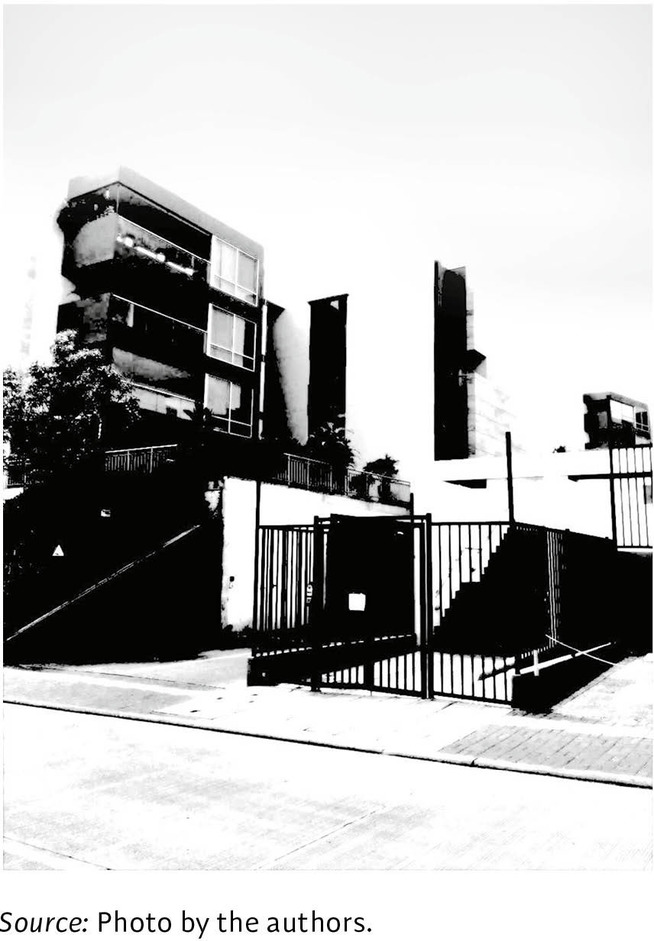Global policies of security and development are critically examined by Kent International Law expert Dr Luis Eslava and Dr Lina Fernanda Buchely Ibarra from the Universidad ICESI in a new article in a leading social sciences journal.
‘Security and Development? A Story about Petty Crime, the Petty State and its Petty Law’ is published in a special issue of Revista de Estudios Sociales (available open access) focusing on law and post-conflict in Colombia and uses the Colombian city of Cali as a central case study.
Dr Eslava and Dr Buchely argue that the rationales and conditions underpinning initiatives associated with the ‘Security and Development’ discourse are creating precarious institutional and human arrangements rather than helping States move beyond insecurity, exclusion and low levels of development. As they show, regardless of significant and often very brave efforts on the part of the local administration to improve security conditions, Cali continues to be one of the most violent locales in the Americas.
Basing their insights on numerous interviews and situated observations, the authors describe the precarity perpetuated by ‘Security and Development’ initiatives in terms of “pettiness”. This characterisation they suggest points to “both the marginal kinds of solutions that ultimately form the core of Security and Development, and the flimsiness that has come to mark those institutional and human arrangements resulting from it. The result is a resilient liminality across the board and the continuation of insecurity.”
This work forms part of an ongoing collaboration between Dr Eslava and Dr Buchely, examining the discourses and practices around the management of petty crime and criminals in the Global South. This particular project arose from their involvement in the Inclusionary Practices Project (IPP), a three-year research partnership between academics at Kent Law School, the Universidade Federal de Minas Gerais (UFMG) in Brazil and other institutions in Latin America and Europe (2015-2018).
Dr Eslava said the opportunity to be involved with the IPP had been extremely helpful in terms of providing a space to discuss research findings and to frame ideas around social inclusion. The IPP, funded by a £26k British Academy’s International Partnership and Mobility Award, investigated how different forms of law and regulation are used to implement social and economic inclusion policies in Latin America and the EU. It was led by Head of Kent Law School Professor Toni Williams as Principal Investigator and Professor Fabricio Polido from UFMG as co-investigator. The project’s final workshop was held in Brussels in September 2018 but Dr Eslava and Dr Buchely hope to apply for further funding that will enable them to continue their research and conduct more sustained fieldwork visits in Colombia.
Professor Polido said he was delighted by the research collaboration between Dr Eslava and Dr Buchely: ‘This has been a very successful outcome of the IPP; the IPP created a very fruitful space for exchanging interconnected research and ideas.’
Professor Williams said: ‘I am so proud and excited that our project played a role in facilitating this amazing research.’
Senior Lecturer Dr Eslava is Co-Director of the Centre for Critical International Law (CeCIL) at Kent. His book Local Space, Global Life: The Everyday Operation of International Law (Cambridge University Press, 2015) was awarded the Hart Socio-Legal Book Prize and the Prize for Early Career Academics by the Socio-Legal Studies Association (SLSA) in 2016. He has research interests in the emergence of local jurisdictions (eg cities and municipalities) on the international scene using an ethnographic approach. His fieldwork and writing in this area interrogates the rationale and contradictions that have accompanied such trends, using different locations in the Global South as case studies. Bringing together insights from anthropology, history and legal and social theory, his research explores the multiple ways in which international norms, aspirations and institutional practices, both old and new, come to shape and become part of people’s everyday life, arguing that closer critical attention needs to be paid to this co-constitutive relationship between international law “up there” and life “down here”.
Dr Buchely is Assistant Professor and Director of the Women Equality Observatory at ICESI’s School of Law. Drawing on methods and perspectives from gender studies and legal anthropology, and leading multidisciplinary research groups, her research explores the diverse ways in which gender, stage regulation and power interact in Global South contexts, with a focus on Colombia’s central and Pacific areas. In 2014, she was awarded the Audre Rapoport Prize for Scholarship on Gender and Human Rights by the Rapoport Centre for Human Rights and Justice, University of Texas. She is a member of the Board of Directors of the Women’s World Banking Foundation and ICESI’s Centre for Afro-Diasporic Studies.

